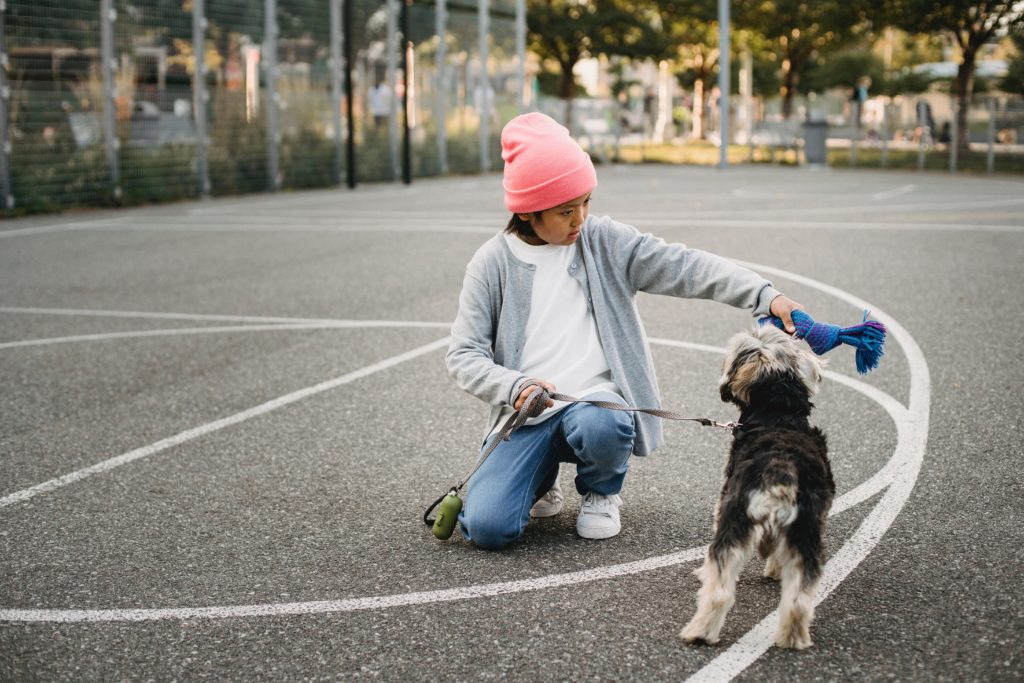
Young children build their view of the world and develop their core values in different ways – from imitating adults to their interactions with animals. But even though students may have a knack for handling or taking care of animals which may have fascinated them, it is not enough to just let them interact with animals however they want.
School leaders, the next person that children interact with the most, will have the opportunity to help these children navigate their interactions with animals. They will have a voice in teaching these young children what it means to care for life other than theirs.
Students with family pets
One of the most important contributions of pets to child development is keeping them responsible. Most pets require food, water, exercise, grooming, bath time, and love. When kids are tasked with these pet care needs daily, they learn how to take care of the overall well-being other than themselves – a pillar of responsibility.
A pet offers unconditional support when a child is sad, angry, or upset and can teach them to trust the pet, themselves, and eventually others. Children develop self-esteem when they learn to perceive the unconditional love given to them. Pets offer loyalty, and children learn from it. It can also be the subject of conversations and can improve social skills. Finally, all the skills needed to care for a pet motivate a kid to succeed in school.
And this could also be true for students without pets in a way. When they learn how to deal with animals, they can be more confident around them.
How animals can shape children’s perspective of the world
Animals can be the window of opportunity for parents and school leaders to teach important life lessons and how children can carry these to adulthood. For example, a difficult skill to teach younger kids is respect. They can learn this from boundaries when animals are sleeping or eating.
Children also learn compassion through kindness in taking care of the pet.
And if ever they have a pet at home or in school, bonding and teaching tricks take time and teach them patience. It can also be their chance to be creative and pique their curiosity with the various tricks they can teach their pets. And since pets are animals, their interest is sparked towards the wild and the whole new world it can open.
A step closer to a compassionate society
Having to care for another being makes children empathetic towards animals and have more empathy in general. Perhaps this is the most enduring trait a child can learn from the myriad responsibilities of taking care of animals.
A study by Taylor & Francis Online has also concluded that providing a school-based humane education program to learn about animal welfare issues and improve their prosocial behaviors has been effective and reinforces core beliefs of empathy towards animals. These help children further develop their empathy towards others and guide them to be better adults later in life.
Teaching children to care for another life early in their lives provides plenty of benefits compared to the risk that comes with it. With the plethora of lessons they can learn and friendships they can create, it can prime them into outstanding members of society that not only have the brains but also with a heart. Lastly, school administrators and teachers will play a vital role when guiding children in caring for something other than themselves where both can learn something new down the line.
If you want to have a program in your school to help these students care and understand animals. We run a unique program called Little Veterinary School, where students could role-play as veterinarians. They will not only learn to identify the animal body but also learn how to perform a nose-to-tail exam, the importance of proper nutrition, and perform a tick check.
All programs are written by experienced educators, board-certified physicians, and trained healthcare professionals. Our classes are led by trained Little Medical School ® Instructors.
If you are interested, please contact Michael Fay (mfay@littlemedicalschool.com) – the Franchisee of Little Medical School in your area – so you can discuss bringing this class to your community.
